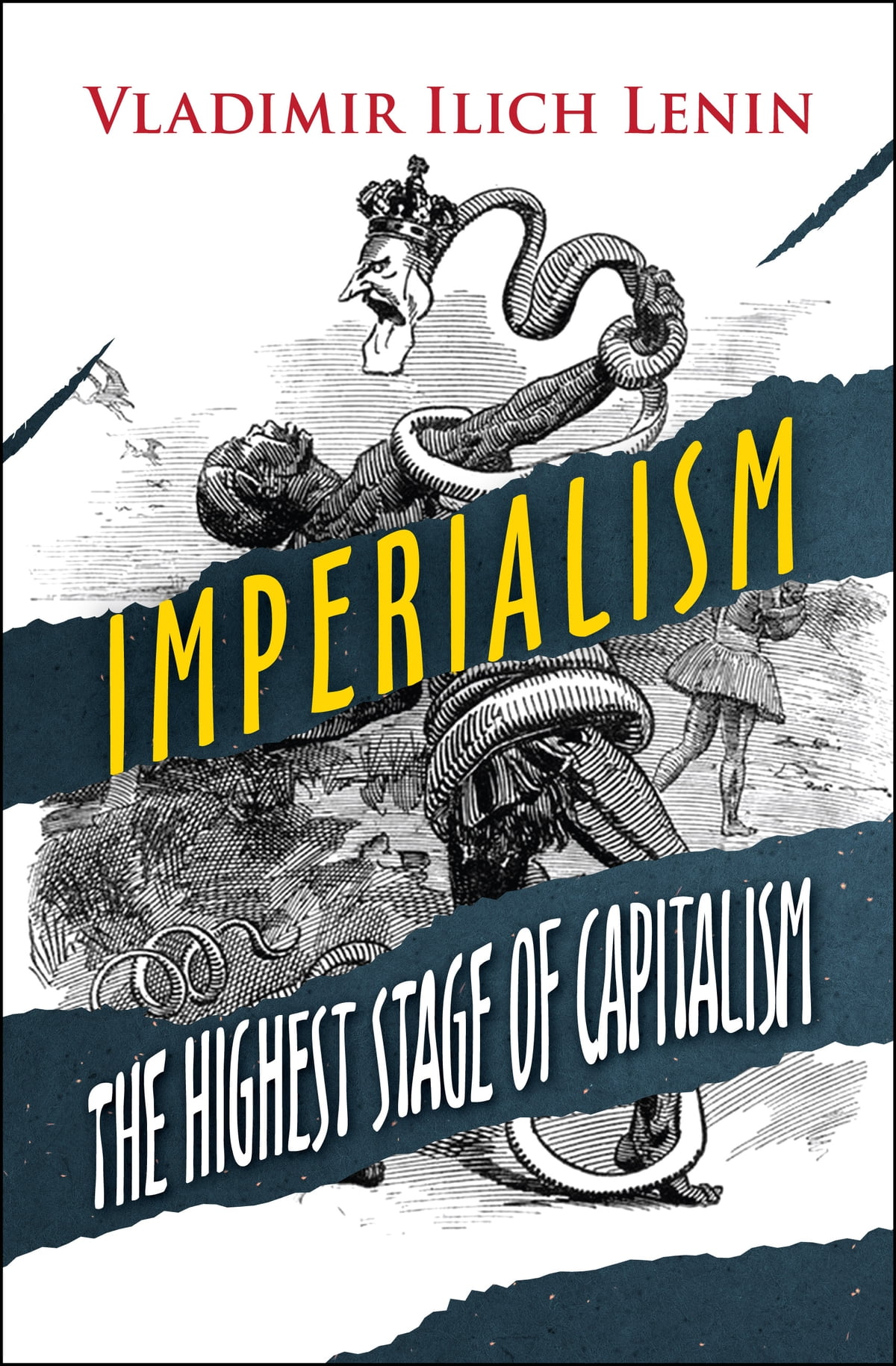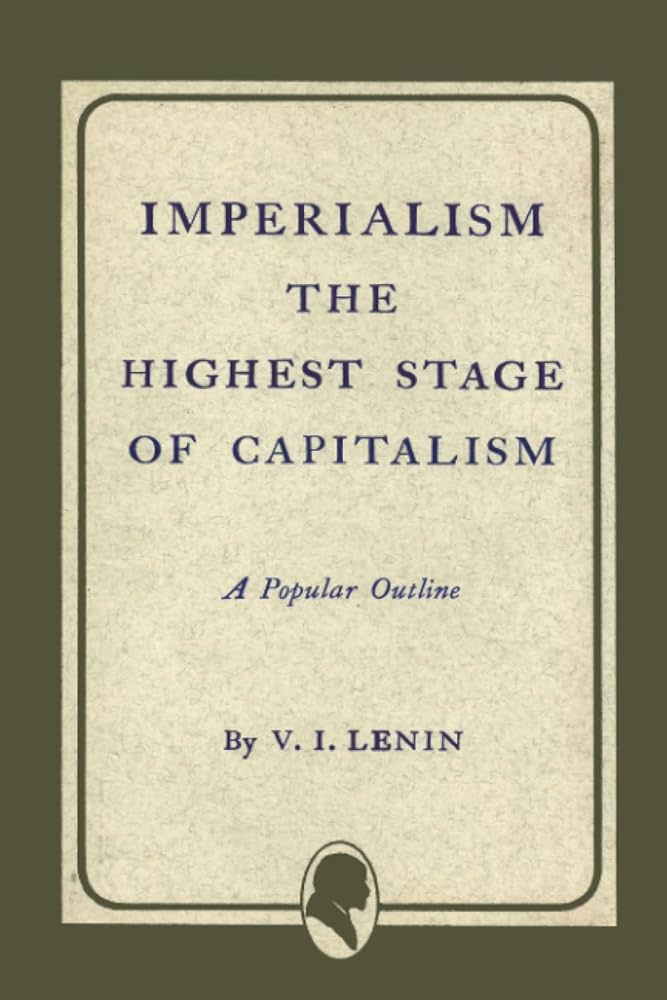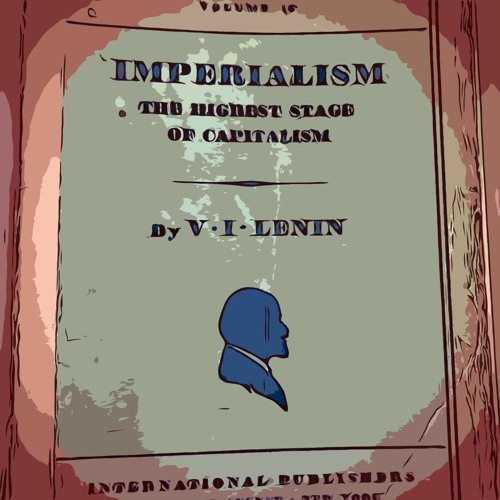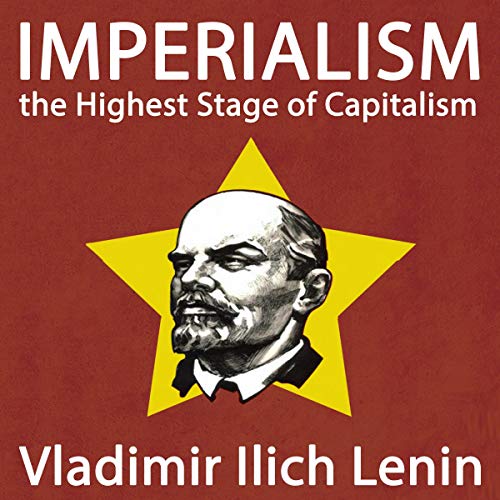“Imperialism, the Highest Stage of Capitalism” by Vladimir Lenin is a critical analysis of the capitalist system. This audiobook explores how imperialism emerges as a natural extension of capitalism.
Lenin’s work delves into the economic and political implications of imperialism. He argues that advanced capitalist nations exploit less developed countries. The book explains how monopolies and finance capital dominate global markets. Lenin discusses the transition from competitive capitalism to monopolistic practices.
He highlights the role of banks in controlling economic activities. The text provides a historical context for understanding modern imperialism. This audiobook is essential for those studying political economy and Marxist theory. Lenin’s analysis remains relevant in critiquing contemporary global capitalism.

Introduction To Lenin’s Seminal Work
Dive into Lenin’s critical analysis of capitalism with the audiobook “Imperialism, the Highest Stage of Capitalism. ” Explore his insights on economic exploitation and global power dynamics.
The Historical Context
Lenin wrote his book during a time of great change. The world was seeing the rise of imperialism. Many countries were expanding their empires. This led to intense competition and conflicts. Lenin aimed to explain these events through a Marxist lens.
Lenin’s Vision And Purpose
Lenin wanted to show how imperialism was the highest stage of capitalism. He believed that capitalism would lead to its own destruction. By understanding imperialism, people could prepare for the next stage. Lenin’s work remains important for those studying economic and political theories.
The Concept Of Imperialism
Imperialism means a country expands its control over others. This is done for economic gain and political power. Lenin said imperialism is the highest stage of capitalism. It happens when big businesses need more resources and markets. They look outside their own country to find these things. The goal is to maximize profits and dominate weaker nations.
Early capitalism focused on individual businesses growing within their own countries. Imperialism, on the other hand, involves large corporations and banks. These entities seek to control foreign lands and resources. They use military force and political influence to achieve their goals. This makes imperialism more aggressive and global than earlier forms of capitalism.
Economic Underpinnings Of Imperialism
Monopolies control large parts of the market. They reduce competition and raise prices. Big businesses dominate small ones. This creates a power imbalance. Monopolies can influence governments. They can shape policies that benefit them. This leads to economic inequality. Ordinary people suffer while monopolies grow richer.
Global capital moves across borders easily. Rich countries invest in poorer ones. They exploit resources and labor. This leads to wealth extraction. Poor countries stay poor. Financial institutions control global markets. They dictate terms to weaker nations. This creates global economic dependence. The rich get richer, and the poor get poorer.
Political Implications Of Imperialism
Lenin argued that imperialism strengthens the state’s power. It allows the state to control more resources. The state uses these resources to grow its influence. This leads to increased militarization. The government supports large companies to expand abroad. These companies work closely with the state. The state, in return, protects their interests.
Imperialism often leads to conflict. Countries compete for resources and markets. This can cause wars. Wars benefit the ruling class. They gain more power and wealth. The working class suffers the most. They fight in these wars. They lose their lives and livelihoods. Lenin believed imperialism was the last stage of capitalism. It would eventually lead to its collapse.
Critiques And Counterarguments
Lenin’s theory of imperialism finds support among many scholars. They agree that imperialism is a natural extension of capitalism. Rich countries seek new markets and resources. This helps them stay powerful. Supporters say Lenin was right about economic exploitation. They claim imperialism creates inequality between nations. Developing countries suffer while rich countries gain. The theory explains why conflicts arise over resources.
Critics argue that Lenin’s theory is outdated. They say the world has changed. Globalization has blurred the lines between rich and poor nations. Some believe capitalism can be fair and just. They point out that developing countries can benefit from foreign investments. Critics also argue that Lenin ignored cultural and social factors. They believe these factors are important in modern imperialism.

Impact On Global Politics
Lenin’s book changed the way people saw capitalism. He said imperialism was the last stage of capitalism. Many countries tried to expand their power. They wanted to control more lands. This led to many conflicts and wars. People began to question the fairness of capitalism. They saw how it hurt poor nations. This book made many think about socialism. It inspired revolutions and changes in many countries.
Lenin’s ideas still matter today. Imperialism is not gone. Big companies control many parts of the world. People still talk about economic inequality. They ask if capitalism is fair. Some think socialism can be a solution. Lenin’s book makes people think about these issues. It helps us understand the world better.
Lenin’s Solutions And Alternatives
Lenin believed in the power of the working class. He thought they could change the world. The workers needed to unite and fight. They had to overthrow the rulers. This was the idea of the proletarian revolution. It was not easy, but Lenin had hope. He trusted the workers to lead the way. They had to take control of factories and farms. This would end the rule of the rich.
Lenin dreamed of a socialist future. In this future, everyone would be equal. No one would be rich or poor. Resources would be shared fairly. Everyone would have what they needed. This was a new way of living. It was different from capitalism. Lenin saw this as a better way. It promised a better life for all people.

Reflecting On ‘imperialism, The Highest Stage Of Capitalism’
Vladimir Lenin’s book remains important today. It discusses how big companies control the world. This concept still fits our modern global economy. Many big corporations have power over smaller countries. This causes economic imbalance. Lenin’s ideas help us understand these power dynamics.
Many scholars study Lenin’s work. They find it useful for understanding modern capitalism. You can read books and articles about this topic. Some universities offer courses on Lenin’s theories. These resources help you learn more. Studying Lenin can be a valuable experience.
Conclusion
The “Imperialism, the Highest Stage of Capitalism” audiobook offers profound insights into Lenin’s theories. It serves as a crucial resource for understanding capitalism’s complexities. Listening to this audiobook can deepen your knowledge of political and economic history. Enhance your perspective by delving into Lenin’s impactful analysis.
Don’t miss out on this enlightening experience.



